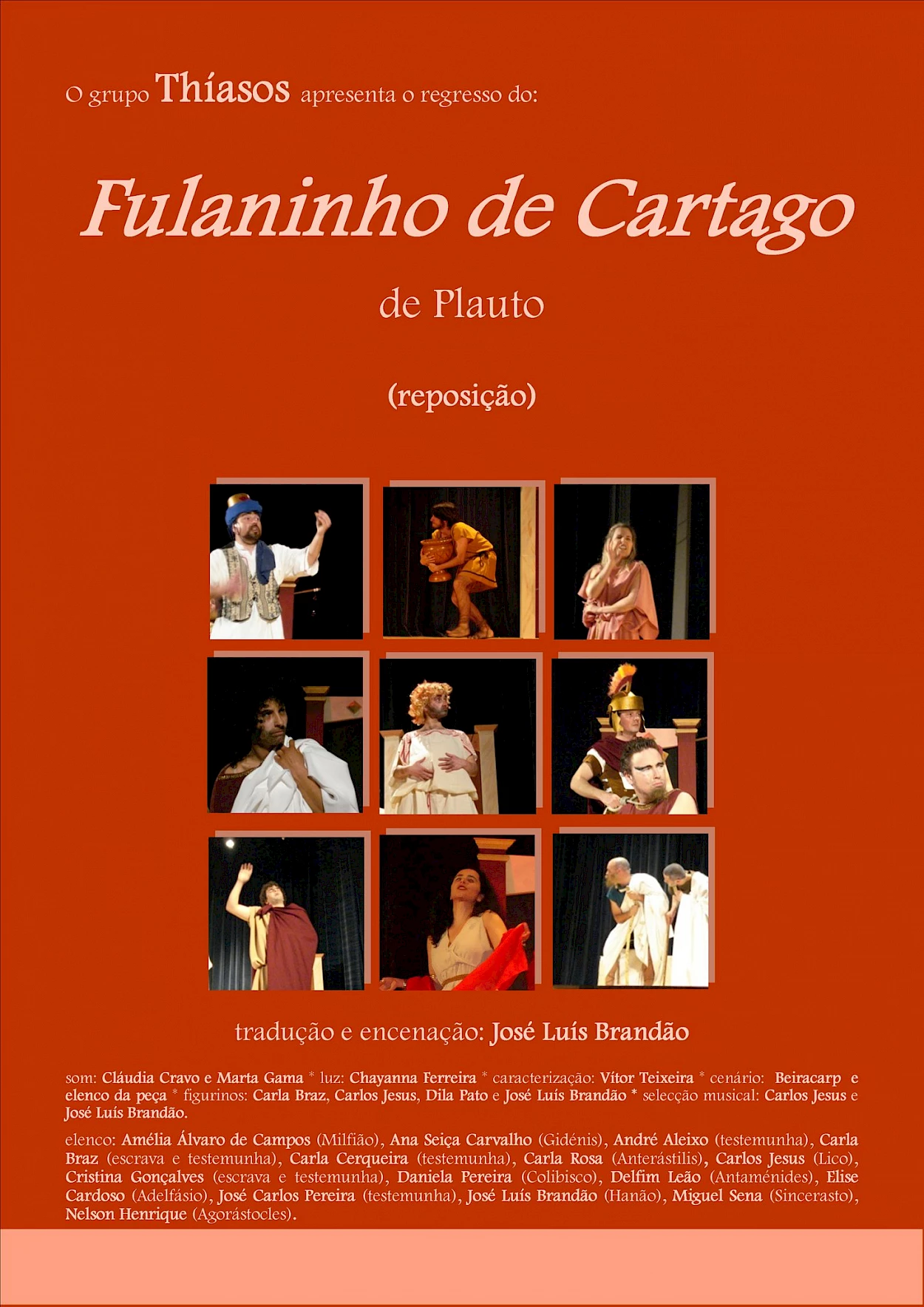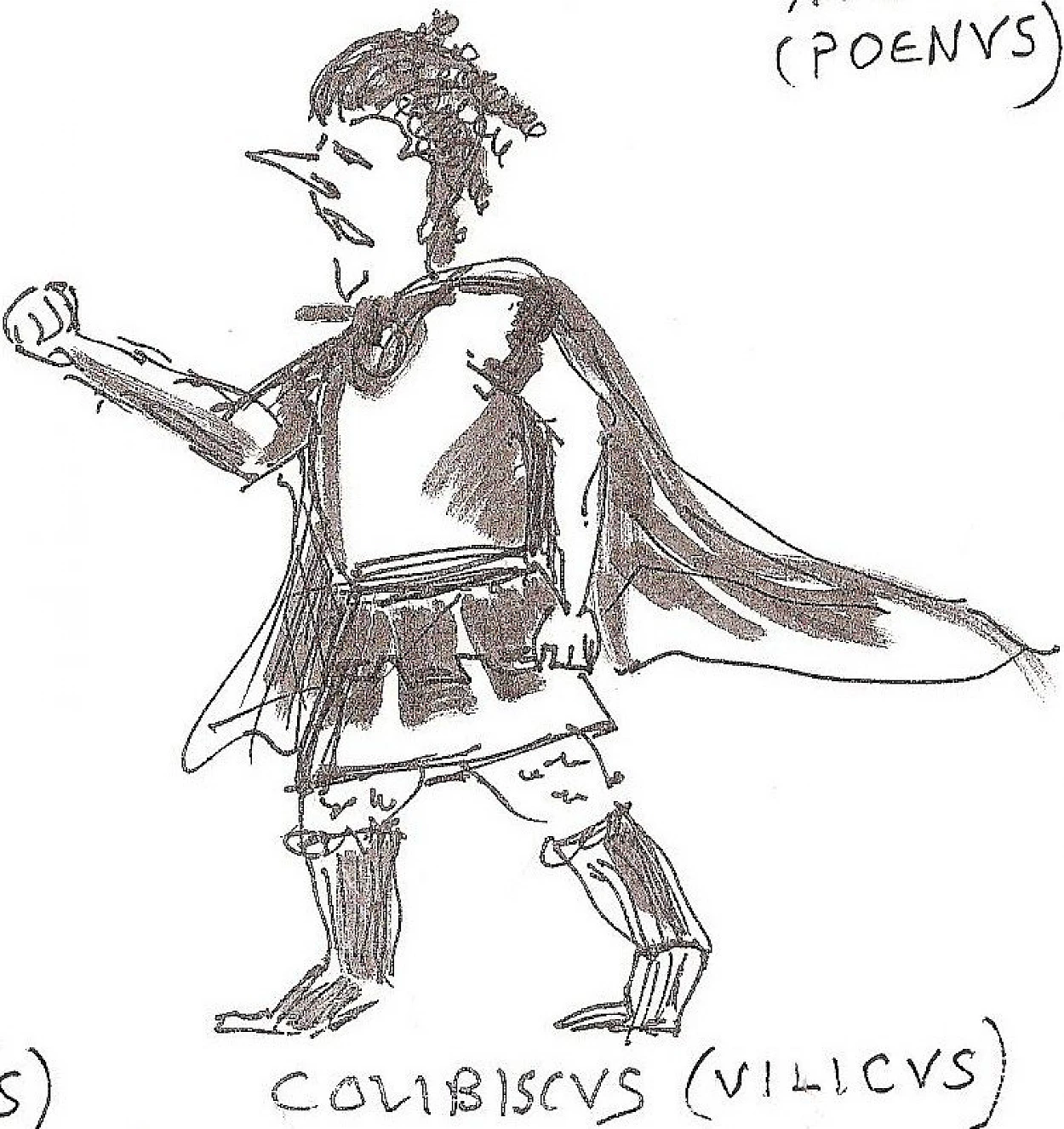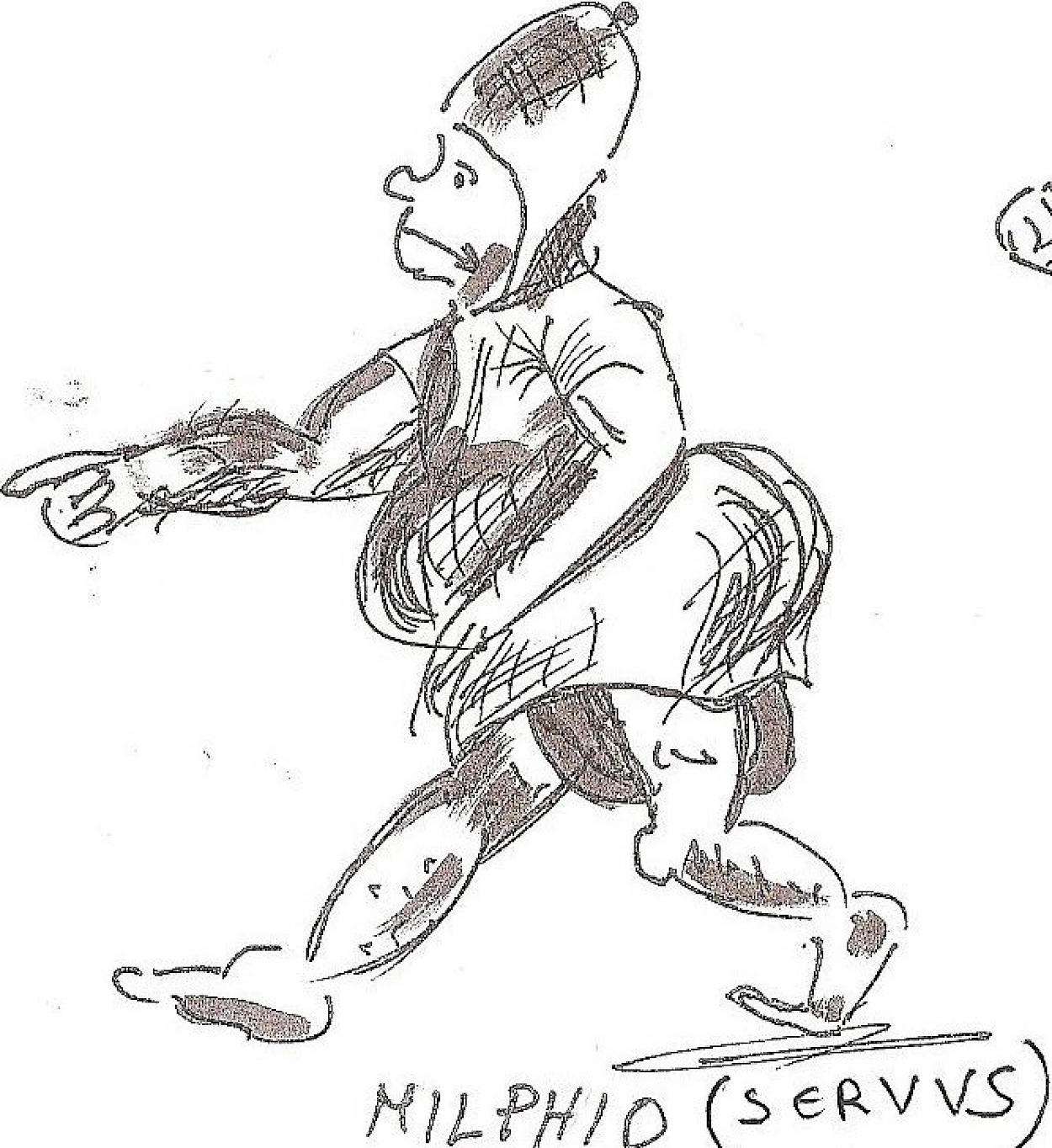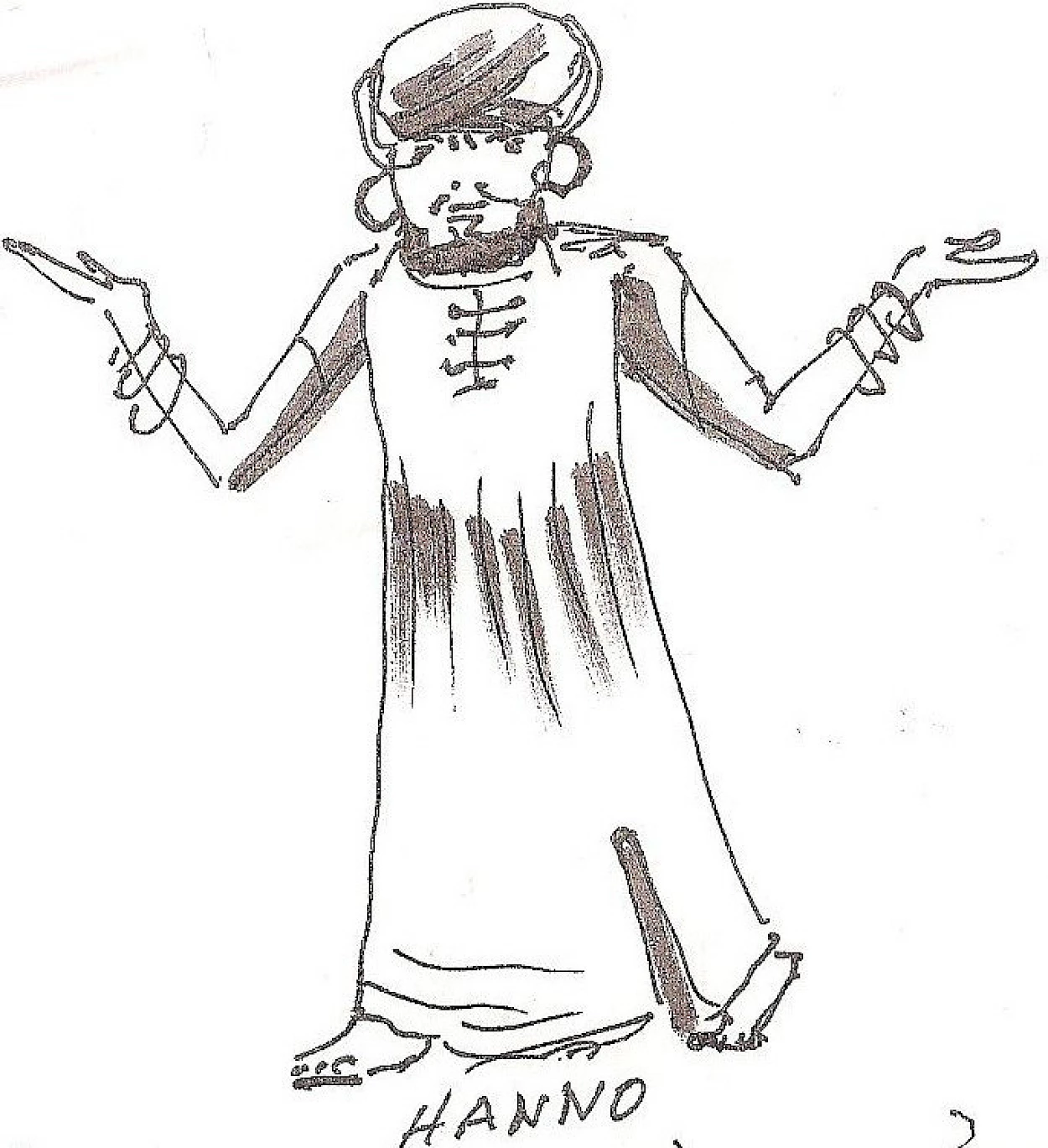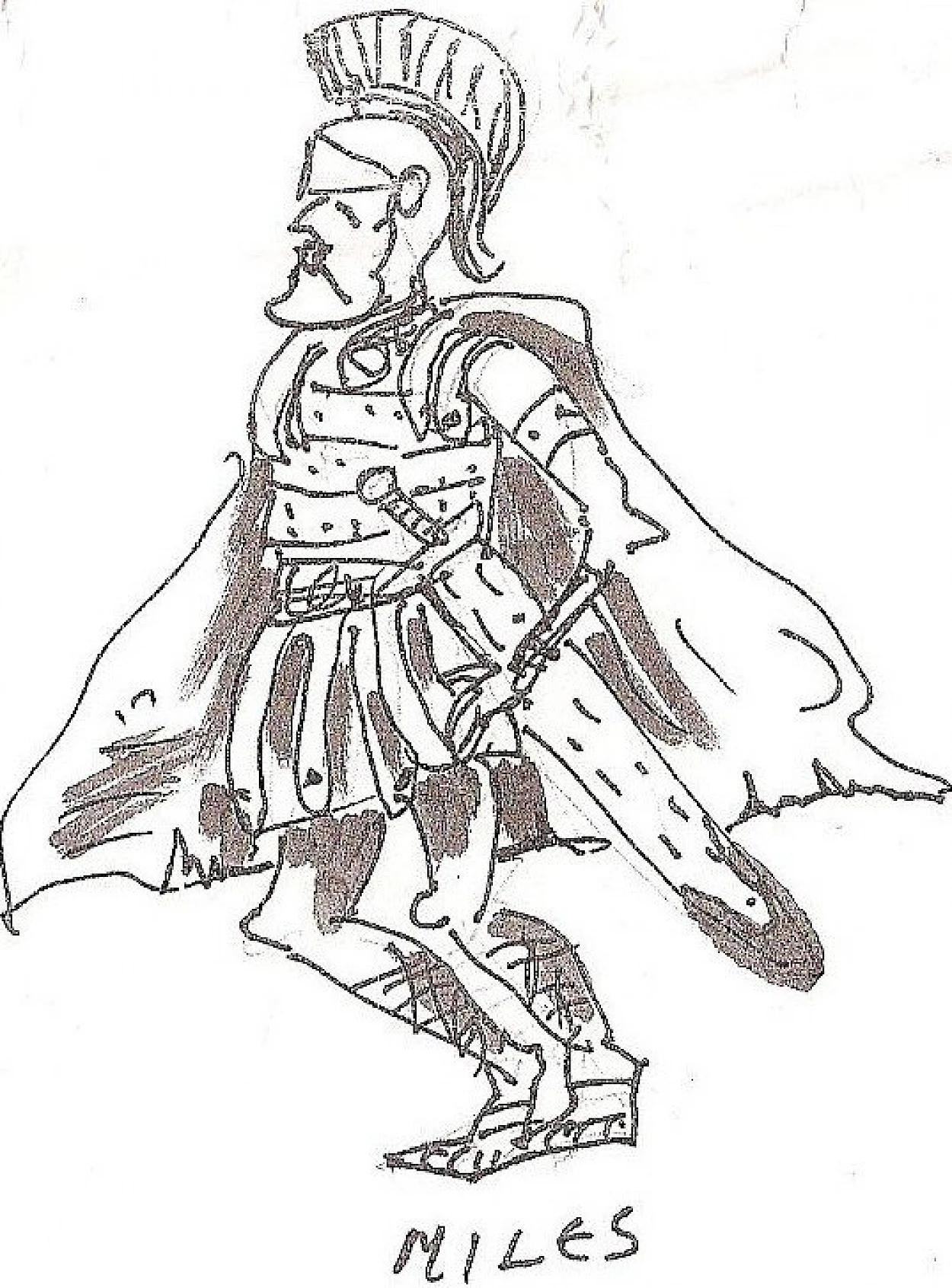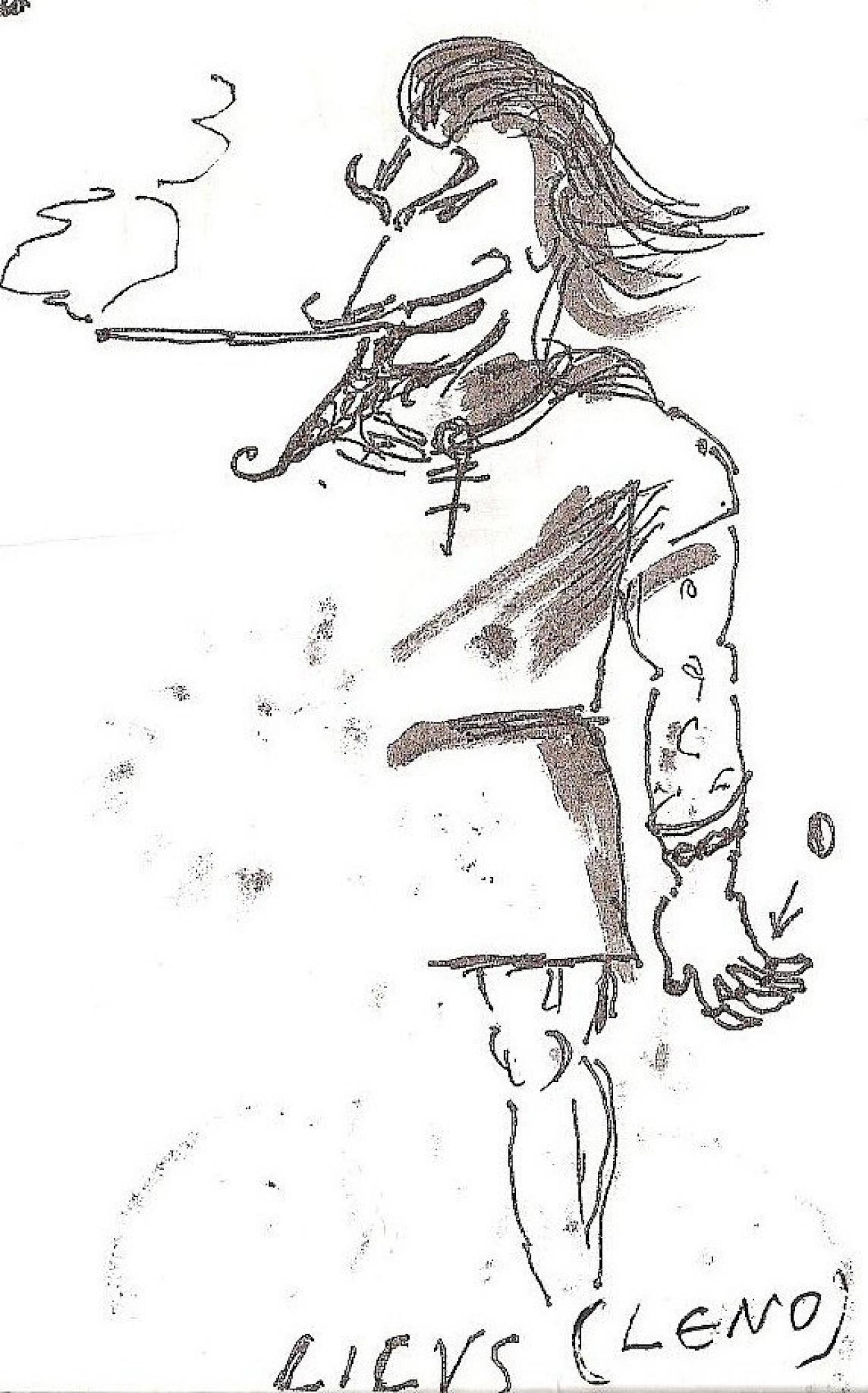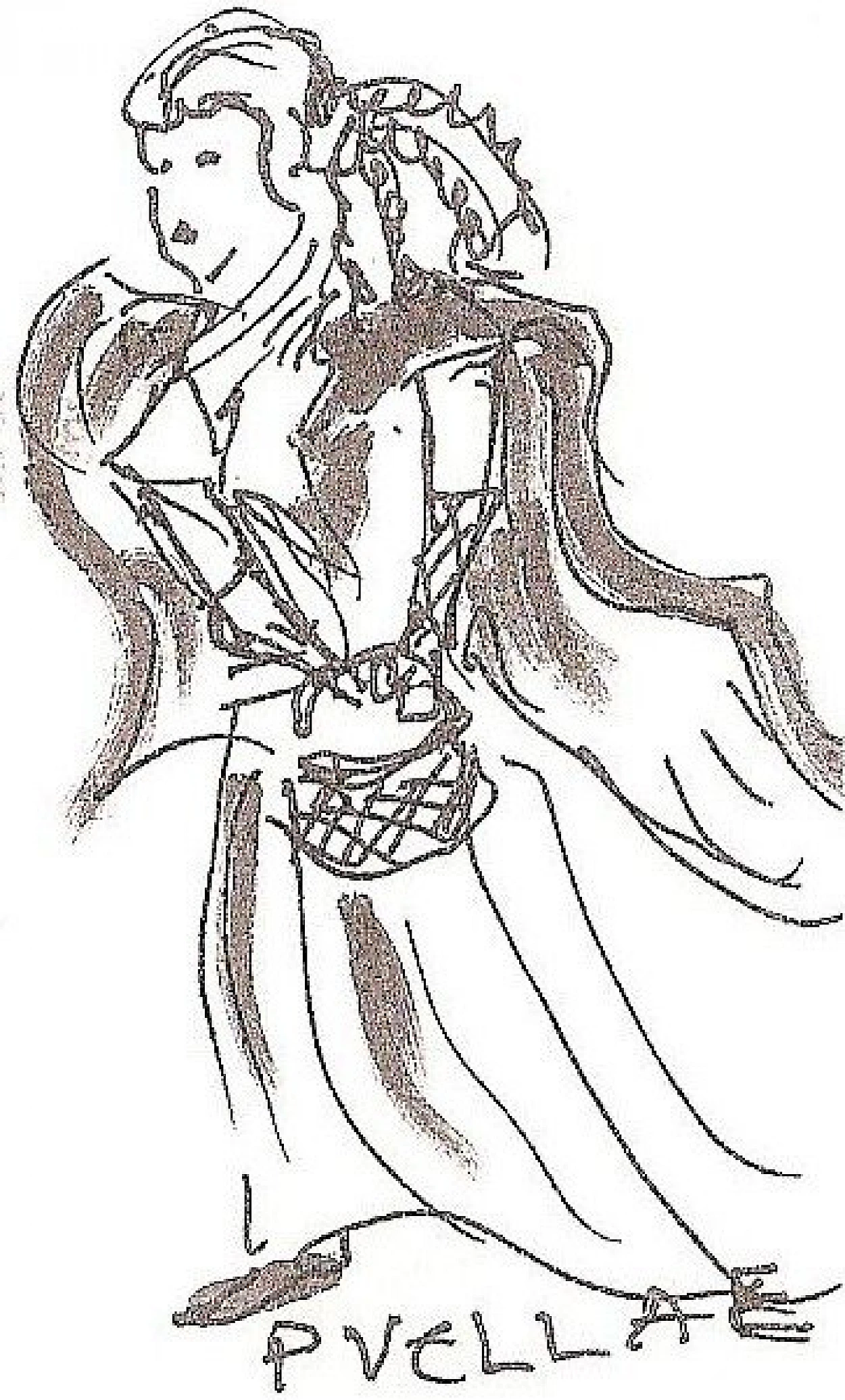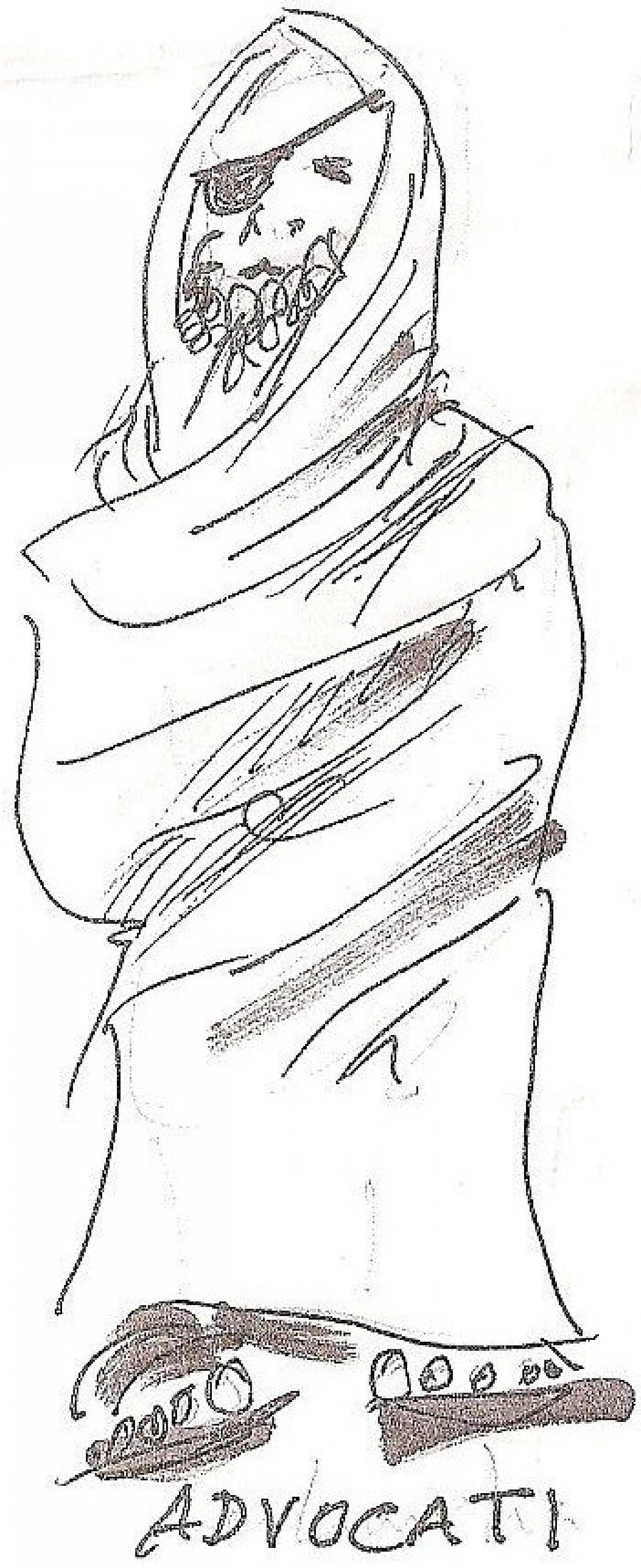Poenulus
Debut: 28 April, 2009
Poenulus by Plautus
Staging: José Luís Brandão
Background of the action
A seven-year-old boy, Agorastocles, was abducted from Carthage. His father languished with grief and left his possessions to a cousin. An old misogynist from Calidon, in Aetolia, purchased the boy, unaware he was his guest’s son, adopted him and, before he died, appointed him his heir. Two of the young man’s cousins were later also kidnapped along with their nanny. Lycus, a pimp, purchased them from some pirates and brought them to the boy’s neighbourhood. Action. Agorastocles is in love with one of the young women, Adelphasium, with no idea she is his cousin. Trying to acquire her, with the help of his cunning slave Milphio, he sets Lycus a trap to get him into legal trouble: the pimp, in the presence of witnesses who have been prepared to do so, is implicated in an alleged robbery and risks being dragged before the praetor. But the outcome is precipitated by a recognition. A Carthiginian arrives in town, discovering that the young man is the son of his late cousin and the girls his lost daughters. The play deals with issues like pimping, slavery of kidnapped people, piracy, that, at the time, ravaged the Mediterranean, and values like family respect (pietas), fidelity to blood ties, motherland and duties of hospitality, that remained from from generation to generation.
Context
Considering the (not always clear) historical references that appear in the play, the dates accounted for the play’s composition range from 197 to 188 BC. A speech by the Witnesses (vv. 524-525) about civil peace and annihilated enemies may contain an allusion to Hannibal's defeat at the end of the Second Punic War (202 BC). But other wars, already over or ongoing, may be implied (with Philip V of Macedonia, defeated at the Battle of Cynoscephalae, in 197 BC; with Nabis, tyrant of Sparta, taken in 195 BC; with Antiochus of Syria, defeated in Magnesia, in 189 BC). Be that as it may, the choice of the theme is intended: at the time of the first performance, the memory of the heavy defeats that Hannibal had inflicted on Rome (218-216 BC), especially that of Cannae, which followed the supreme despair of seeing Hannibal ad portas, worsened by the irremediable damage caused by the long stay (until 204 BC) of such a numerous and heterogeneous army in italic lands. The defeat of the terrible enemy, Carthage, followed by peace in 201, was still recent. The Romans’ reaction to the Carthaginians is evident in some proverbial sayings regarding the Punic perfidy and jocous remarques on the exotic clothing (useful elements for the work of scholars and stage directors today), but it does not go beyond that. Contrary to what one would expect, and the title of the play seems to suggest, Plautus does not focus on attacking Rome’s deadly enemy. The Carthaginian Hanno, perhaps determined by the Greek play that, in the prologue, Plautus says is translating, is portrayed not as a broken monster, but also a model of ancestral virtues (among which pietas) and dignity, in which we seem to detect something Terentian in this character marked by suffering. In the end, Hanno is the triumphant one, bringing the prize to the good and ruin to the wicked. In addition, the Carthaginians’ girls, despite their situation – they are about to be initiated into prostitution – struggle to maintain the dignity of their condition (especially Adelphasium), being saved at the last moment, as the nanny points out, when they were preparing to submit to their fate. Hence the overwhelming joy, for finding their long-awaited father.
The action takes place on the day of Aphrodisias, the Venus festival.
Characters
Agorastocles is what is expected of a young boy in love: selfish and cruel. Greed can be added, as, despite being emancipated, he has not yet rescued his beloved. In favour of the young boy is his respect for the bonds of hospitality, which led him to unconditionally welcome Hanno, as well as the pride of his Carthaginian origin. Milphio is the typical cunning slave, of quick wits, knowing more about wine than of women, or so he says. He does not spare words of mockery to his passionate master. Adelphasium is a kidnapped young woman, destined to become a prostitute. In this character there is a certain contradiction: sometimes she is conscious of the dignity of her noble origin, others she seems to act as a vulgar courtesan. Anterastilis is her sister, kidnapped along with her. She is more mundane than her sister. Lycus (“wolf”, in Greek), the pimp, is ruthlessly eager for money. But he is just fulfilling his profession. In the end, he is a destroyed man, and his resignation in recognizing he has lost and accepting his fate, almost causes pity. Antamynides is the typical Plautus’s swaggering soldier. The bragging about his adventures, the victory over flying men, is not behind Pyrgopolynices’s exploits in The swaggering soldier. The Witnesses function as a rare example of a choir in Roman comedy. They are not exempt witnesses, as they are going to take an oath on an indictment that they know is a hoax. Collybiscus is Agorastocles’s caretaker who, to deceive the pimp, plays the role of a Spartan mercenary on the run. Syncerastus, the pimp’s slave, does not share his master’s values; he regrets the lupanar’s decay and is ready to contribute to the ruin of his boss. Hanno, the Carthaginian, has never stopped looking for his kidnapped daughters. He enters the scene speaking Punic, which shows that Roman spectators understood something of the enemy’s language. Although the term Hanno is accepted in Portuguese, as a name of several friendly persons of Carthage, for the performance we adopted the (also legitimate) form of Hannon, thus avoiding misconceptions of oral language and for its exotic sound. Giddenis is Adelphasium’s and Anterastilis’s nanny and the key to the immediate recognition by Hanno. Finally, a Slave (in this performance, a woman) from Hanno’s entourage and Giddenis’s daughter.
Production credits
Staging: José Luís Brandão
Wardrobe and props: Carla Braz, Carlos Jesus, Dila Pato and José Luís Brandão
Musical composition: José Luís Brandão
Musical selection: Carlos Jesus and José Luís Brandão
Scenarios: Ana Seiça Carvalho, Beiracarp Carpintarias Lda, Carla Correia, Carlos de Jesus, José Luís Brandão, Nelson Henrique
Sound: Cláudia Cravo and Marta Gama
Lights: Ana Seiça Carvalho, Carlos Santos
Make-up: Vítor Teixeira
Cast
Nilce Carvalho; Nelson Henrique (Agorastocles)
Amélia Álvaro de Campos (Milphio)
Inês Correia; Ângela Leão; Elise Cardoso (Adelphasium)
Carla Rosa (Anterastilis)
Carlos Jesus (Lycus)
José Luís Brandão (Hanno)
Delfim Leão (Antamynides)
Nelson Henrique; Cláudio Castro Filho, Daniela Pereira (Collybiscus)
Miguel Sena (Syncerastus)
Stella Quandt; Ana Seiça Carvalho (Giddenis)
Carla Correia; Erika Mascarenhas; Cristina Gonçalves (Slave)
Cristina Gonçalves, Carla Brás, Carla Cerqueira, André Aleixo, André Loureiro (Witnesses)


